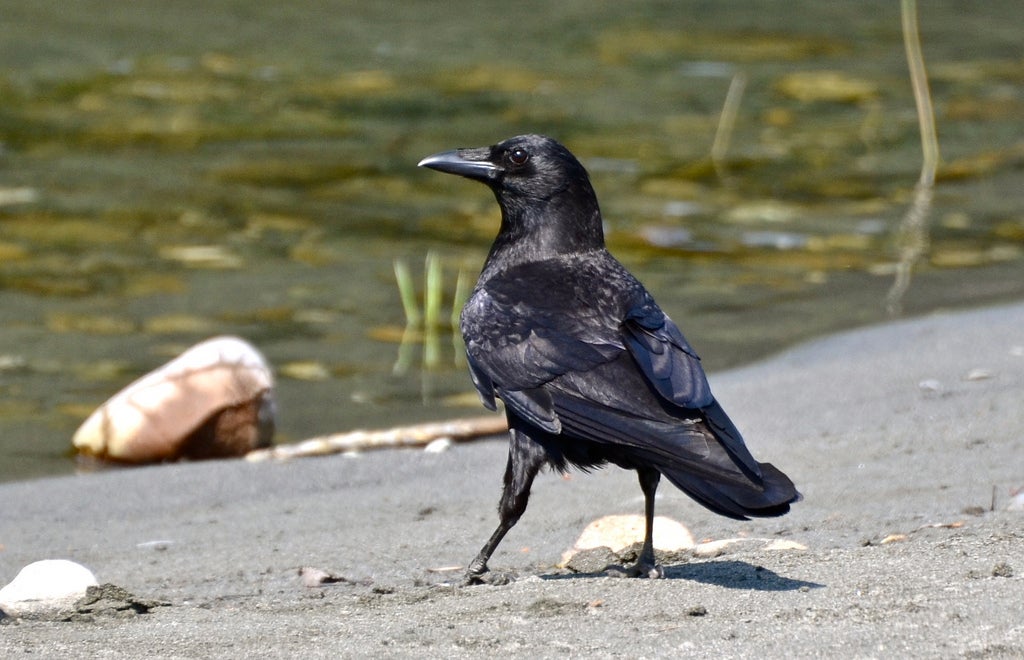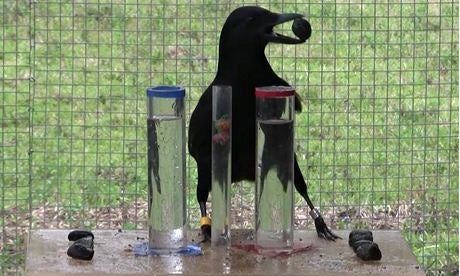Crows 'as clever as children' in causal reasoning
New Caledonian crows were tested with tasks based on Aesop's Fables

Your support helps us to tell the story
From reproductive rights to climate change to Big Tech, The Independent is on the ground when the story is developing. Whether it's investigating the financials of Elon Musk's pro-Trump PAC or producing our latest documentary, 'The A Word', which shines a light on the American women fighting for reproductive rights, we know how important it is to parse out the facts from the messaging.
At such a critical moment in US history, we need reporters on the ground. Your donation allows us to keep sending journalists to speak to both sides of the story.
The Independent is trusted by Americans across the entire political spectrum. And unlike many other quality news outlets, we choose not to lock Americans out of our reporting and analysis with paywalls. We believe quality journalism should be available to everyone, paid for by those who can afford it.
Your support makes all the difference.A new study of the intelligence of New Caledonian crows suggests that the birds have reasoning powers roughly equal to those of a five to seven-year-old child.
The research, which was published in the journal Plos One, subjected six wild crows to a range of tests including a “water displacement” tasks based on one of Aesop’s fables, ‘The Crow and the Pitcher’.
In the test (and the fable) the thirsty crow has to drink out of narrow container filled with water. The bird cannot reach the liquid but works out that it can raise the water level by dropping stones into the pitcher.
When the crows were faced with this task they not only completed it, but did so in the most efficient way possible, choosing containers with higher water levels and choosing objects that were solid, rather than hollow, to raise the water level.

However, it wasn’t all easy for the crows, and birds were stumped by more difficult tasks involving a U-shaped container with hidden connections. In this the birds were supposed to drop stones into one of the pipes to raise the water level in the other but “showed no signs of learning which tube would bring the reward.”
"These results are striking as they highlight both the strengths and limits of the crows' understanding,” said Sarah Jelbert from University of Auckland, who led the study.
“In particular, the crows all failed a task which violated normal causal rules, but they could pass the other tasks, which suggests they were using some level of causal understanding when they were successful."
The study concluded that the birds’ understanding of causal and effect was roughly equal to that of a five to seven-year old child. Caledonian crows, a species well known for their intelligence, have been observed making and using tools in the wild as well as placing nuts on busy roads so that they will be cracked by passing cars.
Any doubts about crows' intelligence? Watch the video below of a crow solving a eight-stage puzzle from a recent BBC documentary.
Join our commenting forum
Join thought-provoking conversations, follow other Independent readers and see their replies
Comments